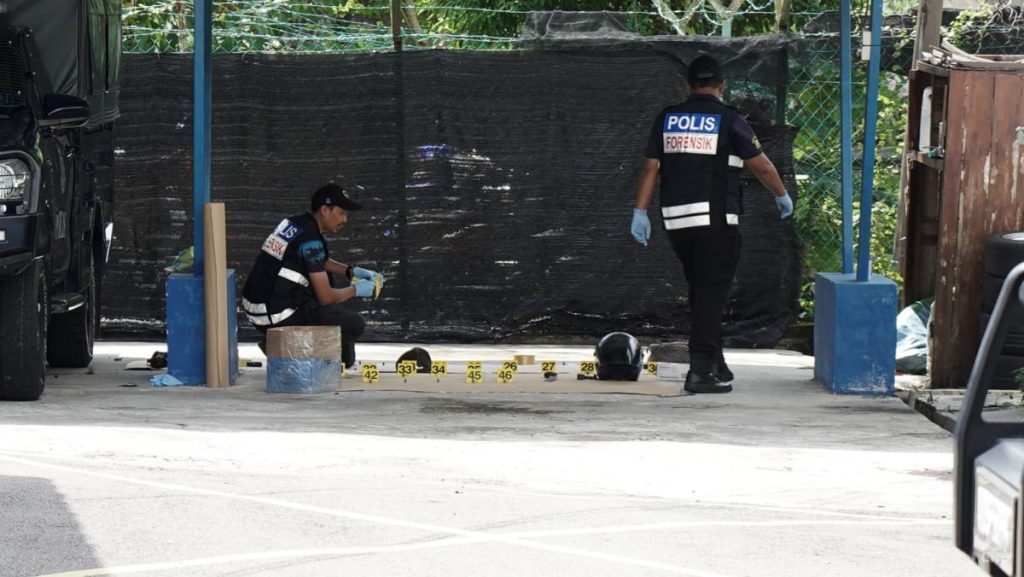More than 20 people believed to be connected to Jemaah Islamiyah (JI) have been arrested for questioning, including five members of a suspect’s family, according to Mr. Razarudin. He highlighted that the suspect’s father, aged 62, is a known member of JI. Additionally, two individuals who were making a police report at the time have also been detained, with Mr. Razarudin suggesting that it seemed illogical for them to be reporting an incident that supposedly occurred two years ago, implying their potential involvement in the attack as distractions for the police. In response to these developments, security has been heightened at police stations, the state’s palace, and the official residence of the Johor chief minister.
Following an incident where two police officers were killed and another injured in an attack, the bodies of the officers and the suspect have been taken to Hospital Sultan Ismail for autopsies and further investigations. The injured officer has also been brought to the same hospital for treatment. The perpetrator responsible for the attack is linked to JI, a terrorist organization associated with Al Qaeda and responsible for some of Indonesia’s deadliest terror attacks, including the 2002 Bali bombings that resulted in over 200 casualties.
The spiritual leader of JI, Abu Bakar Bashir, established a religious school named Luqmanul Hakiem in Ulu Tiram in the early 1990s. This school had notable attendees such as Noordin Muhammad Top, the suspected mastermind behind the 2009 Jakarta hotel bombings, and another JI militant named Mukhlas who was involved in the 2002 Bali bombings. These connections highlight the potential ties between individuals involved in acts of terrorism and the teachings or environment within certain religious institutions.
The strategic location and activities of Luqmanul Hakiem indicate a possible breeding ground for radicalization and extremist ideologies, as key figures linked to JI and notorious acts of terrorism were affiliated with the school. The intelligence on potential terror threats continues to evolve, with recent arrests shedding light on the network of individuals associated with JI and their potential involvement in violent incidents. The authorities have taken proactive measures to enhance security at critical locations in light of these developments.
The detention of individuals connected to JI and the heightened security measures reflect the ongoing efforts to address the menace of terrorism and prevent future attacks. By targeting key figures linked to extremist organizations like JI and probing potential links between religious institutions and radicalization, law enforcement agencies aim to disrupt the networks facilitating acts of terror. The collaboration between security forces and intelligence agencies plays a crucial role in identifying and neutralizing threats posed by extremist groups, thereby safeguarding communities against the impact of violent attacks.
In conclusion, the recent arrests and investigations into individuals associated with Jemaah Islamiyah underscore the persistent threat of terrorism in the region. The interplay between religious education, extremist ideologies, and acts of violence highlights the complex nature of counterterrorism efforts. By dismantling networks linked to organizations like JI and strengthening security measures, authorities aim to mitigate the risk of further attacks and uphold the safety and security of the public. Ongoing vigilance and cooperation between law enforcement agencies are essential in combating terrorism and preserving peace in communities facing the threat of extremist violence.


